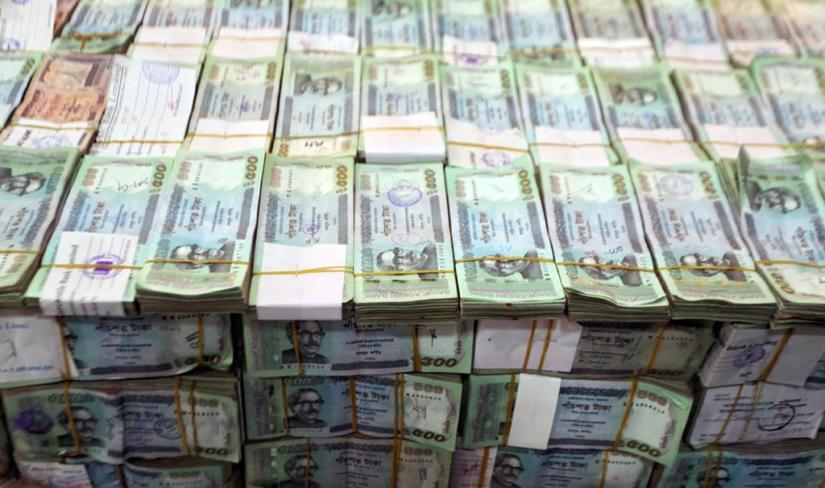 Since independence, corruption has always been a major headache for Bangladesh. And all governments carried out anti-corruption drives though most were not successful. In most cases, such drives were abused.
Since independence, corruption has always been a major headache for Bangladesh. And all governments carried out anti-corruption drives though most were not successful. In most cases, such drives were abused.
Many believe that due to an unassailable nexus between the party in power and corrupt elements, the efforts fizzled out in the end.
Most feel that those linked to corruption were never brought to justice, which resulted in the failure of these efforts.
In a war ravaged country, Bangabandhu Sheikh Mujibur Rahman, declared war against corruption and he was so fed up with venality that in almost all his addresses, he exhorted the people to stand against it.
At that time, steps were taken against certain business people, racketeers, profiteers and hoarders but Bangabandhu could not stop the looting of relief items.
These corrupt elements engineered a crisis of chilies and salt; a look at newspapers between 1972 and 1975 shows that ruling party officials and leaders were accused of black market involvement, embezzlement, and the looting of project funds and banks.
At that time, several efforts to set up grass root governance also faltered. In such a condition, emergency was declared on 9 February, 1974 with the main aim of preventing anti- state activities and hand out punishment.
The special law had provisions for the death penalty for profiteering, assassination and sedition.
At a speech made on Mar 26, 1975, at Suhrawardy Udnyan, Bangabandhu said: “We need to uproot corrupt people from the country and we need your help.”
But the plan could not be implemented as Bangabandhu was assassinated on 15 August, 1975.
The two following military governments could not control corruption. Ziaur Rahman imposed martial law from Nov 6, 1975 till Apr 9, 1979 and after his assassination, another military ruler, HM Ershad, imposed martial law which ran till Nov 10, 1986.
During these times, anti-corruption drives were scattered. Under the military rules, corruption expanded.
Noted columnist, Abdul Gaffar Chowdhury, said: Ziaur Rahman and Ershad followed Ayub Khan and Yahiya; Ershad imprisoned barrister Moudud for corruption but later called him and made him a minister and then the vice president. Khaleda Zia’s parliament was filled with people accused of corruption and murder.
In BNP’s two terms IN (1991-96) AND (1996-2001) no notable steps were taken to eradicate corruption.
The Anti Corruption Commission was formed in 1957 through the anti-corruption law 1957 with one DG and several directors. The officials were brought on deputation from administration, police and judiciary.
Dr Iftekharuzzaman of Transparency International Bangladesh, TIB, says that a full- fledged operation could not be carried out since an independent commission did not exist.
As per Banglapaedia, two major political parties of the country, Awami League and BNP, expressed pledges to form independent anti corruption commissions.
But the BNP-led 4-party government did not take any initiative on the matter. In 2004, Parliament passed a law in this regard and the existing Anti Corruption Bureau was dissolved. The new law stressed on the formation of an independent commission.
 Others
Others
30736 hour(s) 51 minute(s) ago ;
Morning 11:45 ; Friday ; Apr 19, 2024
Post independence drives against corruption
Send
Udisa Islam
Published : 07:30, Nov 22, 2019 | Updated : 07:30, Nov 22, 2019
Published : 07:30, Nov 22, 2019 | Updated : 07:30, Nov 22, 2019
0 ...0 ...
/tf/ab/
Topics: Top StoriesExclusive
- KOICA donates medical supplies to BSMMU
- 5 more flights to take back British nationals to London
- Covid19: Rajarbagh, Mohammadpur worst affected
- Momen joins UN solidarity song over COVID-19 combat
- Covid-19: OIC to hold special meeting
- WFP begins food distribution in Cox’s Bazar
- WFP begins food distribution in Cox’s Bazar
- 290 return home to Australia
- Third charter flight for US citizens to return home
- Dhaka proposes to postpone D8 Summit
Unauthorized use of news, image, information, etc published by Bangla Tribune is punishable by copyright law. Appropriate legal steps will be taken by the management against any person or body that infringes those laws.
Bangla Tribune is one of the most revered online newspapers in Bangladesh, due to its reputation of neutral coverage and incisive analysis.
F R Tower, 8/C Panthapath, Shukrabad, Dhaka-1207 | Phone: 58151324; 58151326, Fax: 58151329 | Mob: 01730794527, 01730794528


